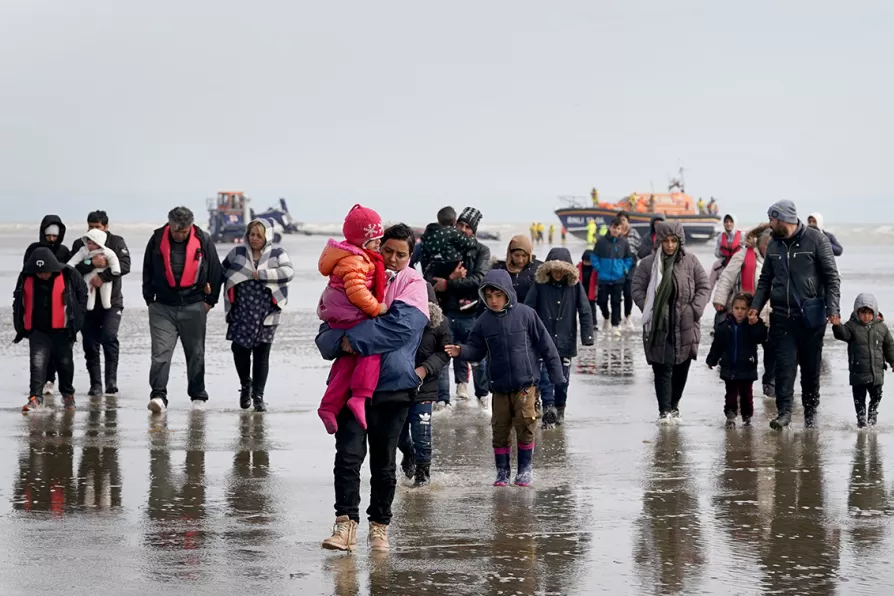MBDA’s Alabama factory makes components for Boeing’s GBU-39 bombs used to kill civilians in Gaza. Its profits flow through Stevenage to Paris — and it is one of the British government’s favourite firms, reveals SOLOMON HUGHES


FADI, a Syrian teenager, with curly hair and an acne-covered face, has miraculously survived one of the greatest migrant boat disasters in the modern history of the Mediterranean.
Only 104 people have been rescued from a boat that carried an estimated 750 refugees after it capsized on June 13 in the open sea near the coastal town of Pylos in Greece.
Scores of lifeless bodies have been pulled out from the water, and many more have washed ashore. Hundreds are still missing, feared dead, many of whom are women and children, as they huddled on the lower deck of the 30-metre boat.

With foreign media banned from Gaza, Palestinians themselves have reversed most of zionism’s century-long propaganda gains in just two years — this is why Israel has killed 270 journalists since October 2023, explains RAMZY BAROUD

Gaza’s collective sumud has proven more powerful than one of the world’s best-equipped militaries, but the change in international attitudes isn’t happening fast enough to save a starving population from Western-backed genocide, argues RAMZY BAROUD

RAMZY BAROUD asks why it has taken so long for even left-wing voices in the West to call out what Israel is doing

RAMZY BAROUD explains why the world can no longer ignore Palestine














